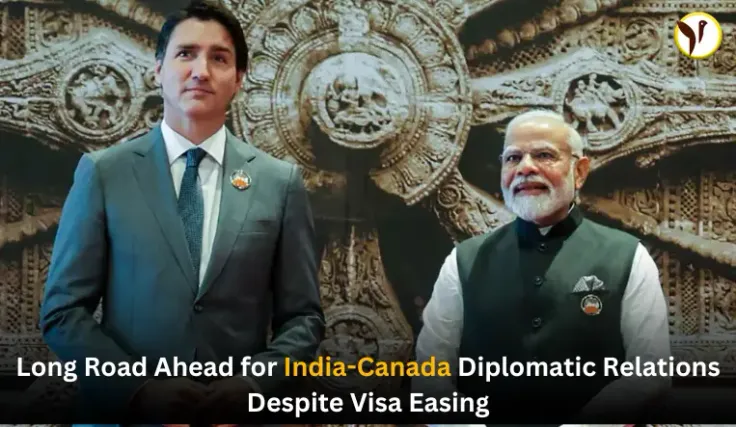Diplomatic experts suggest a slow and challenging path to recovery for strained India-Canada relations, as both countries have taken strong stances despite India's recent partial easing of visa restrictions for Canadians.
The move comes after weeks of tension sparked by Ottawa's claim that Indian agents might have been involved in the murder of a Canadian Sikh separatist leader from Punjab. These mutual accusations have strained the historically close ties between the two nations and their extensive links through the Sikh diaspora.
Although India's gesture in relaxing visa restrictions has raised hopes for improved relations, it does not represent a significant breakthrough. Both sides appear hesitant to rush back to normalcy, as Canada continues its murder investigation, and India's Prime Minister Narendra Modi gears up for national elections by May.
Also read: NIA Launches Massive Operation Targeting Terrorist-Gangster-Drug Smuggler Nexus
Michael Kugelman, Director of the South Asia Institute at the Wilson Center in Washington, describes the current state of the relationship as being in "deep crisis," possibly its worst ever. While both sides may have an interest in preventing the situation from spiraling out of control, there are no strong incentives to resolve the crisis promptly.
Ajay Bisaria, India's former ambassador to Canada, suggests that the relationship is in a "de-escalation phase" due to "quiet diplomacy." However, despite the temporary reprieve, visa restrictions are expected to impact the movement of thousands of Indians and people of Indian origin in Canada and those planning to study there.
While both governments have spared business and trade links, the acrimony has delayed discussions on a free-trade deal and jeopardizes Canada's Indo-Pacific plans, in which India plays a critical role in countering an assertive China.
Also read: Canada Evacuates Diplomats from India Amid Controversy
The crisis began when Canadian Prime Minister Justin Trudeau asserted that India might be connected to the murder of Hardeep Singh Nijjar, a Sikh separatist leader, in Vancouver. Canada expelled India's intelligence chief in Ottawa, and India retaliated by suspending 13 categories of visas for Canadians and reducing Canada's diplomatic presence in India.
On October 25, India announced it would resume issuing visas under four categories, primarily to facilitate travel for people of Indian origin during the wedding season. However, Indian officials clarified that this move does not signify a thaw.
A senior Canadian government source acknowledges that Canada aims to return to a stable relationship but highlights the unpredictability associated with the murder investigation, trial proceedings, and India's upcoming elections.
Despite the "modest de-escalation" through visa measures, much of the tension remains, and both sides continue to harbor resentment. Experts suggest that time and a pause are necessary for a return to a more amicable relationship, though it will not happen overnight.
Also read: U.S. Dollar Hits 6-Week Low as Job Data Disappoints: Key Insights







